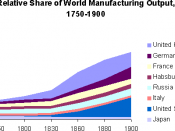The suddenly popular movement for educational reform in the early 1980s coincided with the mass marketing of the personal computer as a needed new tool and the consequent surge in computer sales. Through the mass media, computers had became part of popular mythology, and people believed that they needed to know about these machines: they purchased them for their homes and businesses, they watched documentaries about them on television, and they began thinking that their children should learn about them in the schools.
"Computer literacy" fit in well with the educational reform movement sweeping the country at that time, and most of the reports recommending curricular changes incorporated some elements of "computer literacy" into their recommendations.
But it is my contention that this movement towards teaching about computers in the schools was not based on a concrete need for people to learn about computers in order to become well functioning members of the society.
As I have pointed out elsewhere (Besser 1988), polls of computer use indicated that the people buying them weren't quite sure what kind of new or interesting use they would put these to. Just as people continued to buy computers for reasons other than a clearly demonstrated utilitarian function, forces continued to press for computer education in the schools without any kind of clear demonstration of how this would make students into better functioning members of our society.
The pressure for "computer literacy" did not come from some clear and pressing need for "good citizens" to have to know about these machines. Rather, this movement came from the traditional forces which had shaped public education since its very beginnings. In this chapter we will see how the corporate need for a trained workforce and the competitive need to keep America ahead of other countries economically and...



Thoroughly written
its a thorough look on computer literacy, but at some places I found myself in totally different topics than you tried to address.
2 out of 2 people found this comment useful.